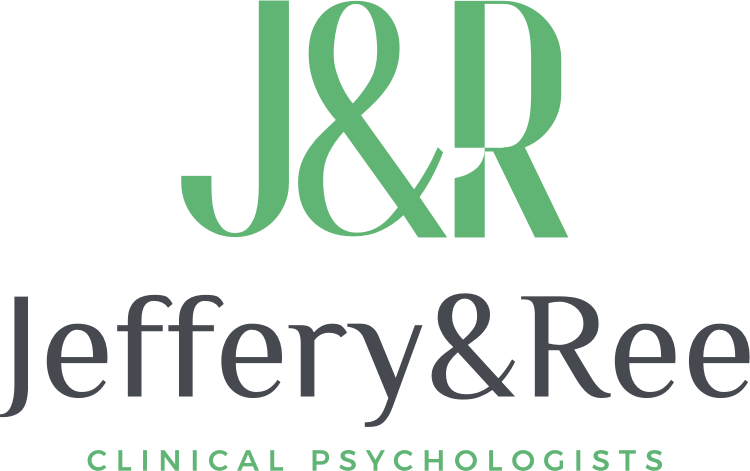Acceptance and Commitment Therapy Perth

We live in a fast-paced world, filled with pressure to succeed, and a sense that we should feel happy all the time, it’s no wonder that many of us struggle with stress, anxiety, and a sense of dissatisfaction. The quest for happiness and peace can feel elusive: sometimes, the harder we try to eliminate discomfort, the worse we end up feeling. Acceptance and Commitment Therapy (ACT) a therapeutic approach that offers a guiding light towards navigating difficulties at the same time as creating a rich and meaningful life.
Acceptance and Commitment Therapy does not teach how to get rid of discomfort (symptoms), rather, it guides us to live a meaningful life even though there may be discomfort present. It helps us to drop the struggle against discomfort which can free us to focus on moving forward to what’s important. In this post, we’ll explore the fundamental principles of ACT, provide practical examples, and share resources that provide a sense of what ACT is.
The following video provides a nice example of what Acceptance and Commitment Therapy is.
Is Acceptance and Commitment Therapy Effective?
Acceptance and Commitment Therapy (ACT) has been found to be effective in treating a wide range of psychological difficulties and promoting overall well-being. The research is clear in demonstrating that there are positive outcomes and benefits associated with ACT interventions.
- ACT is supported by evidence from 100’s of clinical trials. It has demonstrated effectiveness across various populations and mental health conditions, including anxiety disorders, depression, chronic pain, trauma, insomnia, substance abuse, and more.
- ACT has been found to be as effective as, and in some cases more effective than, traditional cognitive-behavioral therapy (CBT) approaches.
- Long-Term Benefits: ACT focuses not only on symptom reduction but also on promoting a more meaningful life. Research suggests that the skills learned through ACT interventions can lead to sustained improvements in well-being well after therapy has ended.
- ACT can be integrated with other therapeutic modalities, such as mindfulness-based approaches and traditional CBT, to good effect. This flexibility allows psychologists to adapt and personalise interventions based on the specific needs and preferences of clients.
Understanding ACT
Acceptance and Commitment Therapy Perth
Acceptance and Commitment Therapy, developed in large part by psychologist Steven Hayes, is grounded in the understanding that discomfort and difficulty is an unavoidable part of the human experience. ACT encourages us to accept our thoughts and feelings, even the difficult ones, rather than trying to eliminate or suppress them. By dropping the struggle, we can open ourselves to a richer, more fulfilling life. we spend less time trying to control how we feel, and more time engaging in what really matters to us. Instead of waiting until we feel better or are symptom-free, we learn to take manageable steps towards a meaningful life.
- The Six Core Principles of ACT
a) Acceptance: Rather than struggling against unwanted thoughts or emotions, ACT teaches us to observe and accept them non-judgmentally, creating space for greater self-awareness and emotional flexibility.
b) Cognitive Defusion: This helps us to step back from unhelpful thoughts by recognising that they are not necessarily accurate representations of reality.
c) Being Present: ACT emphasizes the importance of living in the present moment, helping us shift attention from worries about the past or future to the richness of the here and now.
d) Self as Context: This principle encourages us to develop a sense of self that is flexible and adapts to the context we’re in. For example, we might have a strong critical self-image such as “I’m not good enough”. Becoming tightly attached to such self-images can be constraining and can get in the way of moving forward. The essence to remember here is “this is a story about me, it isn’t actually me”.
e) Values: ACT emphasizes clarifying our core values and using them as a guide for decision-making and action, enabling us to live in alignment with what truly matters to us. We move towards giving energey to things that matter most to us in life.
f) Committed Action: This principle calls us to take action in line with our values, stepping out of our comfort zones and embracing growth and change. - Examples of ACT Techniques
a) The Mindful Breath: Practice a brief mindfulness exercise by focusing on your breath, and noticing the sensations without judgment. This helps cultivate present-moment awareness. Mindfulness of the hand achieves a similar outcome and you can hear this exercise here.
b) Cognitive Defusion: There are many cognitive defusion techniques and Acceptance and Commitment Therapy will help you to explore them. One example is, when faced with an unhelpful thought, is to label it “here’s the I’m not good enough story again”. This simple technique helps create distance from thoughts, reducing their impact. It’s often helpful to experiment with several to find what works for you: https://www.actmindfully.com.au/upimages/Using_the_ACT_Companion_App_for_defusion.pdf
c) Values Clarification: Reflect on the qualities and experiences you deeply cherish in life. Who and how do you want to be in your life? Consider what you’d most like a loved one to say about you on your next birthday. what would you like to be remembered for? In answering these questions, you can identify your core values and consider how you can align your actions with them. For example, if kindness is an important value, how does this guide decisions about your day-to-day choices?
d) Willingness: Engage in an activity you usually avoid due to discomfort or fear. Sit with the discomfort, allowing it to be there, and notice that it doesn’t have to dictate your choices or limit your life. Check out this willingness explanation and exercise here.
ACT Resources for Further Exploration
Acceptance and Commitment Therapy Perth
Books:
- “The Happiness Trap” by Russ Harris: This book offers a comprehensive introduction to ACT, presenting practical exercises and strategies to apply in daily life.
- “Get Out of Your Mind and Into Your Life” by Steven C. Hayes: Hayes, the founder of ACT, shares insights and practical exercises to help readers break free from struggles and embrace a life of meaning.
Apps and online resources:
- Consider exploring apps like “ACT Companion” and “ACT Coach” to receive guidance, mindfulness exercises, and values-based actions directly on your smartphone.
- ACT Mindfully: a very comprehensive website. Some of the information is for health professionals, but there are lots of useful videos that explain ACT concepts in the ‘free stuff’ section.


